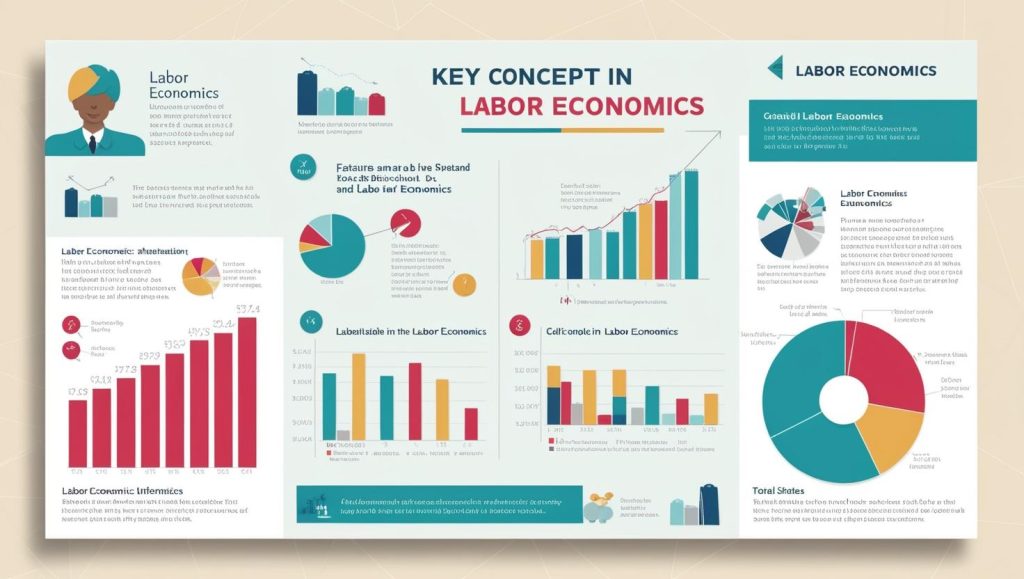Introduction
Labour economics is a crucial branch of economics that analyzes the functioning and dynamics of labour markets. It involves studying employment, wages, labour productivity, human capital, and government policies affecting workers and businesses. However, students often find it challenging to grasp economic theories and apply them to real-world labour market issues. If you are searching for Labour Economics homework help, this guide will provide you with detailed explanations, expert solutions, and reliable resources to assist you in excelling in your assignments.

What is Labour Economics?
Labour economics examines the supply and demand for labour, wage determination, employment policies, and workplace dynamics. Some of the key areas covered in labour economics include:
- Labour Supply and Demand: Understanding the factors influencing employment and workforce participation.
- Wage Determination: Analyzing how wages are set through market forces and government intervention.
- Human Capital Theory: Exploring how education, training, and skills impact productivity and earnings.
- Labour Market Discrimination: Studying wage gaps based on gender, race, and other factors.
- Unemployment and Job Search Theories: Examining the causes and consequences of unemployment.
- Government Policies and Labour Regulations: Evaluating the impact of minimum wage laws, labour unions, and social security programs.
Why Do Students Need Labour Economics Homework Help?
1. Complex Economic Models
Labour economics involves intricate models like the marginal productivity theory of wages and efficiency wages, which require advanced analytical skills.
2. Mathematical and Statistical Analysis
Many assignments involve data interpretation, econometric modeling, and regression analysis, which can be difficult for students unfamiliar with statistical software.
3. Real-World Application
Applying economic theories to real-world labour market policies and case studies requires critical thinking and research skills.
4. Time Constraints
Balancing multiple courses and assignments can make it difficult for students to dedicate enough time to labour economics studies.
Best Resources for Labour Economics Homework Help
1. Online Learning Platforms
Access in-depth courses and tutorials on labour economics through:
- Coursera Labour Economics Courses (https://www.coursera.org/)
- MIT OpenCourseWare – Labour Economics (https://ocw.mit.edu/)
- Khan Academy Economics Lessons (https://www.khanacademy.org/)
2. Expert Tutoring Services
Get one-on-one help from professional tutors:
- Chegg Study Labour Economics Experts (https://www.chegg.com/)
- TutorMe Economics Help (https://www.tutorme.com/)
3. Academic Research and Articles
Deepen your understanding by reading scholarly papers:
- Google Scholar – Labour Economics Research (https://scholar.google.com/)
- National Bureau of Economic Research – Labour Studies (https://www.nber.org/programs-projects/programs-working-groups/labor-studies)
4. Discussion Forums and Study Groups
Engage in discussions and collaborate with peers:
- Reddit’s Economics Forum (https://www.reddit.com/r/Economics/)
- Stack Exchange – Economics Discussions (https://economics.stackexchange.com/)
Key Topics in Labour Economics and Their Solutions
1. Labour Supply and Demand Analysis
- Learn how to construct supply and demand curves for labour.
- Analyze factors that shift labour supply, such as education and immigration policies.
2. Wage Determination and Theories
- Understand the role of marginal productivity in wage setting.
- Study different wage determination models, including collective bargaining and monopsony markets.
3. Unemployment and Labour Market Policies
- Examine types of unemployment (frictional, structural, cyclical).
- Assess the impact of government policies on reducing unemployment.
4. Human Capital and Productivity
- Explore the relationship between education, training, and wage growth.
- Analyze data on returns to education and workforce productivity.
5. Labour Market Discrimination
- Study wage disparities based on gender, race, and age.
- Evaluate policies aimed at reducing labour market discrimination.
6. Minimum Wage and Labour Laws
- Examine the impact of minimum wage laws on employment levels.
- Analyze the role of trade unions and collective bargaining.
Benefits of Using Labour Economics Homework Help
- In-Depth Understanding: Gain expert explanations of key concepts.
- Improved Analytical Skills: Develop the ability to interpret economic data effectively.
- Time Management: Save time by using structured study materials and expert solutions.
- Higher Grades: Improve academic performance with well-researched assignments.
Conclusion
Labour economics plays a crucial role in understanding employment patterns, wage structures, and workforce policies. Mastering topics such as labour supply, wage determination, and unemployment requires a strong grasp of economic theories and real-world applications. If you need assistance with assignments, seeking Labour Economics homework help can provide valuable insights and structured guidance. Utilize online courses, expert tutoring, and research resources to build a solid foundation in labour economics and excel in your coursework.


